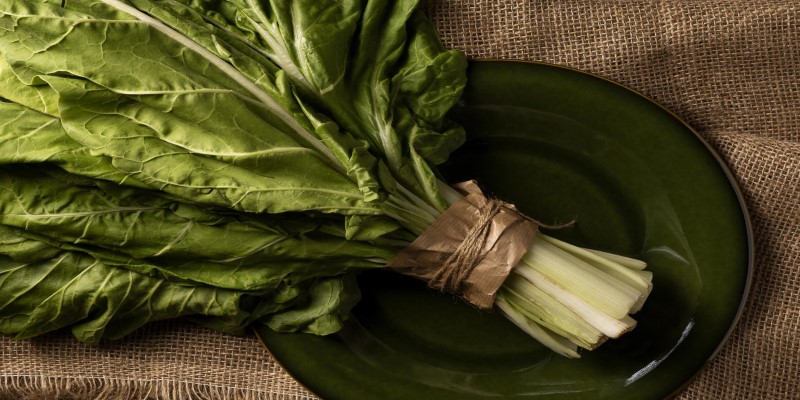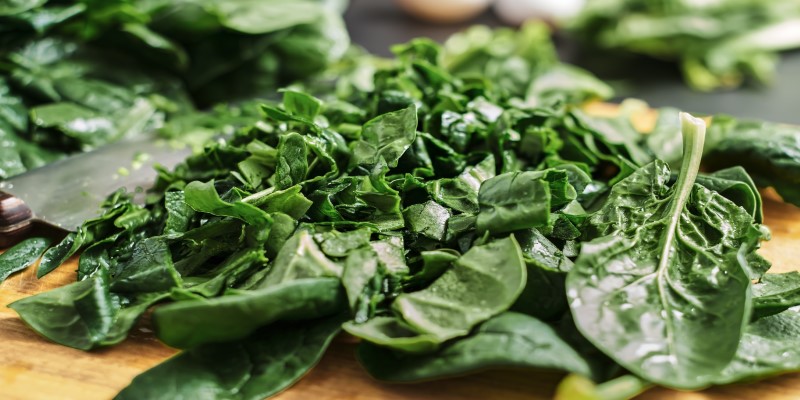Cruciferous Vegetable – 3 Major Health Benefits
Feb 09, 2024 By Nancy Miller
Eating vegetables and fruits is very important for your health. They are packed with many different nutrients needed for your body to grow and become healthy. When talking about vegetables, there are a lot of different kinds of vegetable families, and all of them have different types of nutrition and benefits for health.
Cruciferous vegetables among these different vegetables can be very beneficial for your health. They are packed with essential vitamins and minerals and have other properties that strengthen your body and boost your immunity. If you want to learn more about cruciferous vegetables, this article has all the information you need. So, let's jump right into the world of cruciferous veggies and see the benefits you can get from it.
What are Cruciferous Vegetables?
The cruciferous vegetables are a group of leafy and green vegetables such as cabbages and mustard-like vegetables. They are packed with a lot of different nutrients and also have a versatile flavor profile. These vegetables belong to the Brassica genus. The reason why they are called cruciferous vegetables is that they are four-petal flowers that are shaped like a crucifix.
These vegetables also have rich color, which indicates that they are packed with nutrients. One of the main reasons cruciferous vegetables are good for your health is because they are filled with a lot of fiber and other meals and vitamins that should be a part of your regular diet.
Following is some of the common cruciferous vegetables that you might find in your local grocery stores and even in your fridge right now.
- Bok choy
- Broccoli
- Turnip
- Watercress
- Wasabi and a few others.
Health Benefits of Cruciferous Vegetables:

There are a lot of different benefits of these cruciferous vegetables. They have a high number of phytonutrients; they also have vitamins, minerals, and fibers that are needed by the body so that it can grow and perform all its body functions. Below, we have mentioned some of the major benefits that you can get if you start incorporating these vegetables into your diet.
Cancer Protection:
One of the main benefits that your body can get if you eat these green leafy cruciferous vegetables is that it can help your body fight against cancer cells:
These vegetables have a high content of phytonutrients. This is a plant-based compound that is excellent for lowering the inflammation in the body and reducing the growth of cancerous cells.
It is also seen that these vegetables have the glucosinolates. These chemicals are mainly responsible for producing the aroma of the veggies. However, they also have anticancer effects. This chemical protects the cells from DNA damage and inactivate the cancer cells. Not only this, but they also have antibacterial and antiviral properties that protect your body against dangerous microbes.
It is seen that cruciferous vegetables are effective in reducing the risk of lung, pancreatic, breast, and even stomach cancer.
Source of Different Vitamins:
Cruciferous vegetables are packed with a lot of different kinds of vitamins. Vitamin K and B9 (folate) are abundantly found in these vegetables; vitamin C is known to build the immunity of the body and is also good for wound healing; it is also great for improving eye vision, helps with iron absorption, and is great for healthy and glowing skin.
Vitamin K is used for healthy bone and also for proper blood clotting. Collard greens are the most effective form of consuming Vitamin K in the body; vitamin B9, more commonly called folate, is also present in these cruciferous vegetables. This is important for the formation of red blood cells and for the DNA structure.
Folate is very important for pregnant women as it reduces the chances of birth defects. This is why women who are pregnant are prescribed to eat a lot of greens to ensure that they have proper levels of Vitamin 89 in their bodies.
Enhances the Immunity:
As mentioned above, cruciferous vegetables have antibacterial and antiviral properties that help the body boost its immune system. It is also seen that the high content of nutrients in these vegetables lowers the risk of chronic diseases such as asthma, Alzheimer's disease, and even diabetes.
Why you should be Careful with Cruciferous Vegetables?

There are a lot of different benefits of incorporating cruciferous vegetables into your diet. However, these veggies must be taken within a limit. This is because if you consume too many of these vegetables, then it can cause different digestive issues. It is seen that in some people high intake of cruciferous vegetables caused gas and bloating.
People who take the blood thinning medications prescribed by the doctors need to be cautious while eating these veggies. This is because they are high in Vitamin K, such as kale and collard greens, and they can cause blood thickening, which might be bad for your health.
It is also seen that consuming too many cruciferous vegetables can have a negative impact on the thyroid. This is why it is suggested that these amounts consumed should be monitored. Too many of these vegetables can be bad for your health instead of being beneficial.
Final Words:
Everyone stresses how vegetables are very good for your health and how you should be eating them all the time; among the different vegetables, cruciferous veggies can be very beneficial for your health because they are high content of vitamins, minerals, and fiber and have antimicrobial properties.
These veggies are commonly available in the local market, such as cabbage, ka broccoli, and a few others. This is why make sure you are also incorporating them in your diet in a limited amount to get the health benefits we have mentioned above. We hope this article was helpful, and now you know the benefits t you can get from eating these vegetables.







